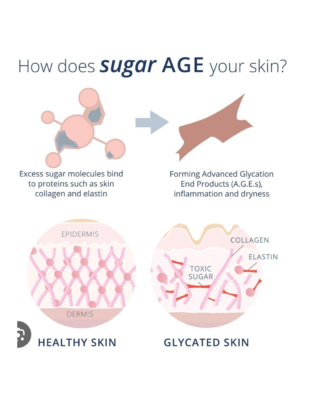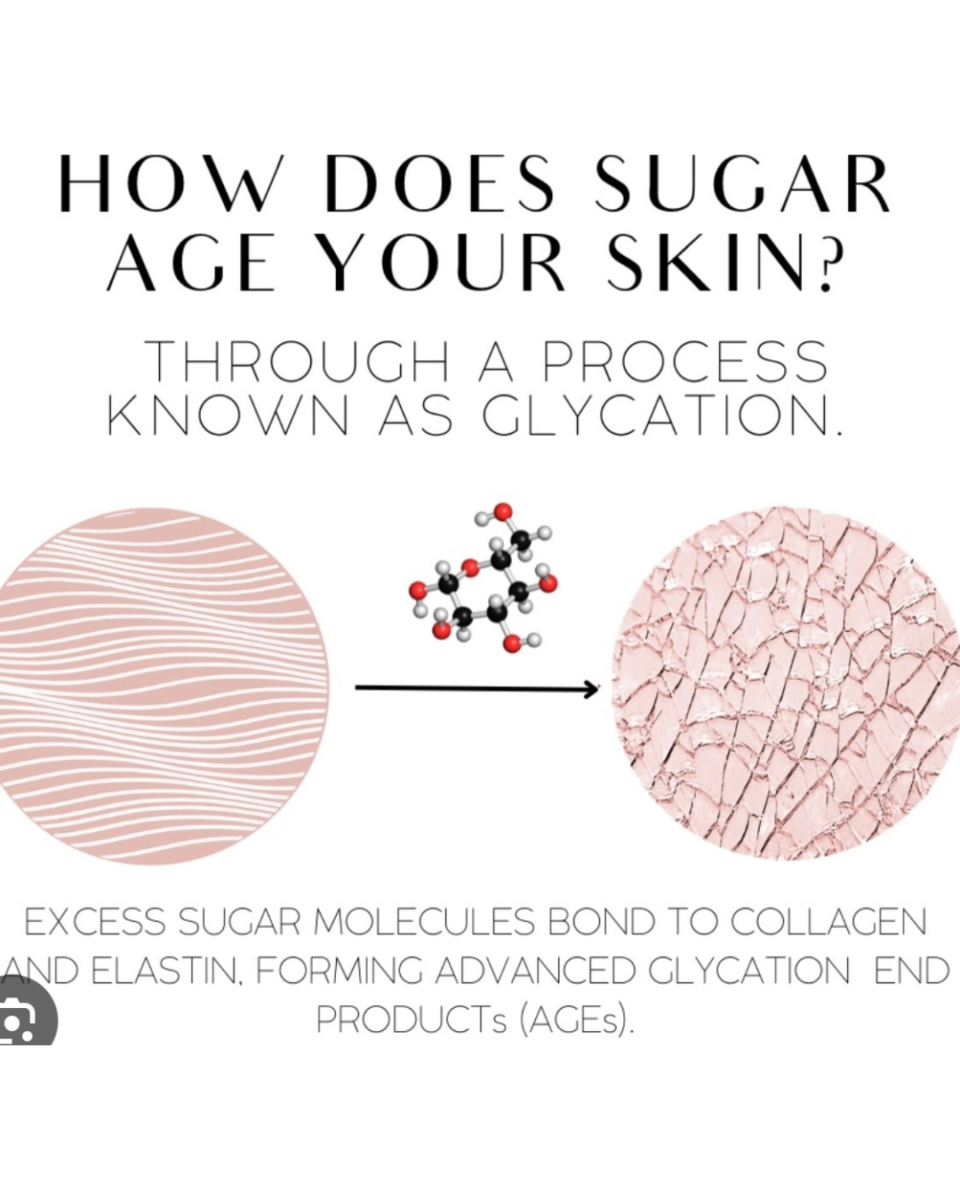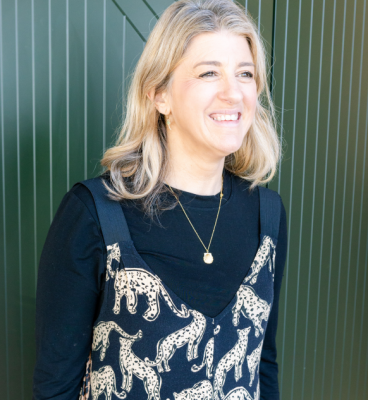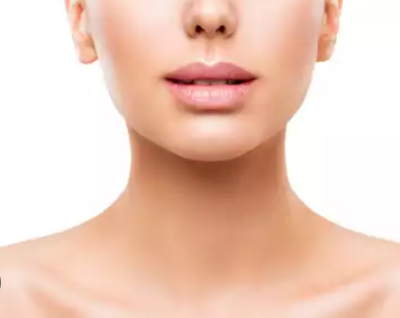In our quest for keeping signs of ageing at bay, we often focus on skincare products, treatments, and routines. However, there’s a lesser-known factor that significantly impacts our skin’s ageing process: glycation. While it might not roll off the tongue as easily as “wrinkles” or “fine lines,” glycation plays a crucial role in how our skin ages. Understanding this process can empower us to make informed choices in our skincare regimen. Let’s delve into the science behind glycation and its effects on ageing skin.
What is Glycation? Glycation is a natural biochemical process that occurs when sugar molecules bind to proteins, lipids, or nucleic acids in our bodies, forming harmful molecules called advanced glycation end products (AGEs). These AGEs wreak havoc by damaging collagen and elastin, the proteins responsible for keeping our skin firm, plump, and youthful. As AGEs accumulate over time, they contribute to various signs of ageing, including wrinkles, sagging, and loss of elasticity.
The Glycation Process: Glycation begins when we consume sugar-rich foods or engage in high-sugar diets. Excess sugar molecules in the bloodstream react with proteins in a process known as the Maillard reaction, leading to the formation of AGEs. These AGEs disrupt the structure and function of proteins, leading to the deterioration of collagen and elastin fibers in the skin. Additionally, AGEs promote inflammation and oxidative stress, further accelerating the ageing process.

Effects of Glycation on Skin: The impact of glycation on skin health is multifaceted. Here’s how this process contributes to ageing skin:
- Wrinkles and Fine Lines: Glycation compromises the integrity of collagen and elastin fibers, resulting in the formation of wrinkles and fine lines, especially in areas prone to repetitive facial movements.
- Loss of Elasticity: Reduced collagen and elastin production leads to decreased skin elasticity, making it prone to sagging and drooping.
- Dullness and Uneven Texture: Glycation disrupts the skin’s natural renewal process, leading to a buildup of damaged cells on the surface. This can cause dullness, roughness, and an uneven skin tone.
- Accelerated Ageing: AGEs promote inflammation and oxidative stress, accelerating the ageing process and making the skin more susceptible to environmental damage.
Combatting Glycation: While we can’t completely avoid glycation, we can take steps to minimize its impact on our skin:
- Watch Your Sugar Intake: Cut back on those sugary treats and opt for a balanced diet full of fruits, veggies, and lean proteins.
- Antioxidants Are Your BFFs: Load up on antioxidants in your skincare routine to combat the oxidative stress caused by glycation. Think vitamins C and E, green tea extract, and more!
- Treat Your Skin Right: Incorporate skincare products with ingredients like retinoids and peptides to stimulate collagen production and keep your skin looking plump and youthful.
- Do Face Yoga: Exercise and massage your face to combat the effects; boost collagen production and blood flow, and tone up the muscles.
Curious to learn more about the science behind why face yoga rejuvenates your face? Read on here!








